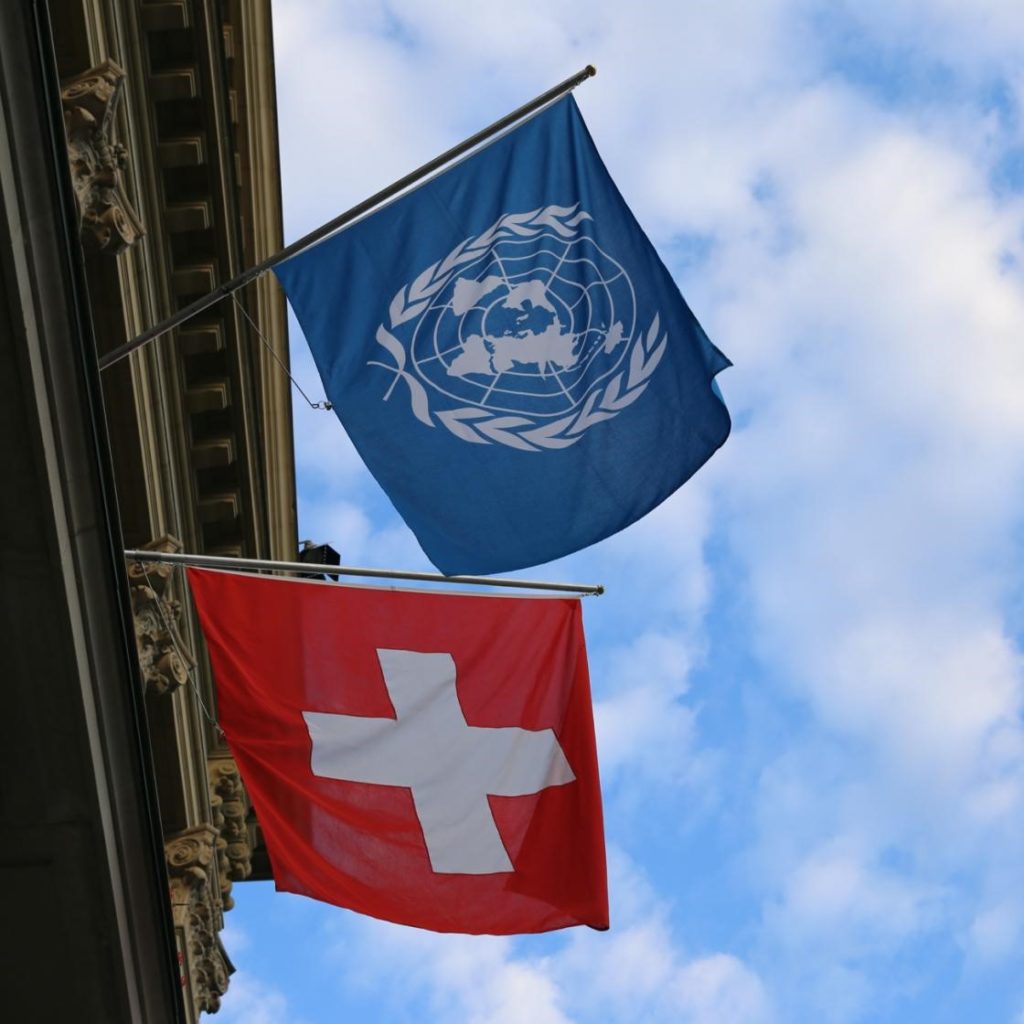Highlight 15/2024 – Switzerland’s role in advancing UN Reform and multilateral governance
Alejandra Rincon Carrillo, 24 April 2024

International Organizations have had an amazing experience and development throughout the years. The United Nations, created 78 years ago, serves an important purpose mandated by its Charter. Nevertheless, there is a need to reflect new realities and priorities. Structures and systems need to be revitalized, to connect and respond to current challenges. This is especially important where human suffering arises through flagrant disregard for international humanitarian law and the undermining of international governance over peace and security.
At the 78th UN General Assembly, this vision for reform was shared by the UN Secretary-General Antonio Guterres where he emphasized the need to re-structure institutions to ensure their relevance and effectiveness. Secretary General Guterres said: “ We cannot effectively address problems as they are if institutions don’t reflect the world as it is”
Switzerland is known for its humanitarian contributions, with a strong track record as a peace promoter and mediator, and is well recognized for its outstanding governance. Since Switzerland joined the UN in 2002, it has influenced multilateral governance, advocating for greater transparency and accountability of the Security Council. In 2012, Switzerland, Costa Rica, Jordan, Liechtenstein and Singapore presented a resolution to the General Assembly for the creation of the Accountability, Coherence and Transparency (ACT) Group. The ACT Group was launched in May 2013 to improve the accountability, coherence and transparency of the UN Security Council.
In July 2015, the ACT Group proposed a “Code of Conduct regarding Security Council action against genocide, crimes against humanity or war crimes”. The code of conduct discouraged Security Council members from voting against credible draft resolutions. In the current global political landscape, amidst various conflicts worldwide, the Security Council plays a pivotal role more than ever in ensuring global peace and security, aiming to prevent further escalations and bears immense responsibility for the maintenance of international peace and security.
Nowadays, the ACT Group is composed of 27 cross-regional small and mid-sized countries. It continues to pursue its aim to improve the working methods of the UN Security Council. In August 2022, Ambassador Pascale Baeriswly of Switzerland delivered a statement to the Security Council highlighting 3 areas to strengthen its working methods. These included a number of initiatives to be continued and institutionalized, the ensuring of inclusivity and the need to use all available formats to forge consensus in response to emerging threats.
In 2023, Switzerland became a non-permanent member of the Security Council for a term of two years. Switzerland’s priorities document for the 2023-2024 term on the United Nations Security Council highlights that Switzerland strives to enhance the sanctions regimes, improve Security Council processes, and foster collaboration between different UN locations, including in International Geneva.
Very recently, a Swiss parliamentary delegation was assigned to be present in New York for the convening of the Security Council. The role of the delegation was to advance Switzerland’s efforts to build bridges and aimed to achieve this through its contributions to the dialogue. The building of bridges is direly needed in the Security Council, which is often paralyzed by the veto of its five permanent members: China, France, Russia, United Kingdom, and United States.
Switzerland is committed to advancing excellence in humanitarian efforts, governance, and diplomacy as part of its support for UN Reform. Accountability, coherence, and transparency are reinforcing principles that must continue to guide improvements in the working methods of the Security Council to enhance the effectiveness of the United Nations system on matters of peace and security.
Alejandra Rincon Carrillo, Highlight 15/2024 – Switzerland’s role in advancing UN Reform and multilateral governance, 24 April 2024, available at www.meig.ch
The views expressed in the MEIG Highlights are personal to the authors and neither reflect the positions of the MEIG Programme nor those of the University of Geneva.
